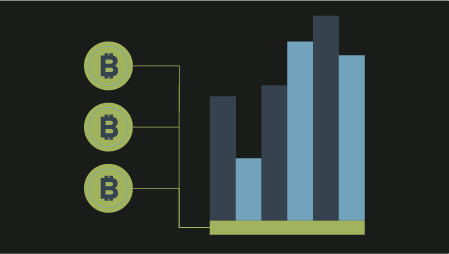By enabling the digitization of assets, blockchain technology is driving a fundamental shift from the Internet of information, where we can instantly view, exchange and communicate information to the Internet of value, where we can instantly exchange assets. A new global economy of immediate value transfer is on its way, where big intermediaries no longer play a major role. An economy where trust is established not by central intermediaries but through consensus and complex computer code.
Blockchains have the potential to change the nature of transactions, money and the global economy. The technology has applications that go way beyond obvious things like digital currencies and money transfers. From electronic voting, smart contracts & digitally recorded property assets to patient health records management and proof of ownership for digital content.
Blockchain will profoundly disrupt hundreds of industries that rely on intermediaries, including banking, finance, academia, real estate, insurance, legal, healthcare and the public sector — amongst many others. This will result in joblosses and the complete transformation of entire industries. But overall, the elimination of intermediaries brings mostly positive benefits. Banks & governments for example, often impede the free flow of business because of the time it takes to process transactions and regulatory requirements.
Where are we now?
Outside of finance and governance, we are only just beginning to explore the uses of private and consortium blockchain technologies. Because blockchain technology’s main use is to cut out middleman and allow for peer-to-peer transactions, it is invariably going to be disliked by those middlemen.
Many companies are scrambling to make their business models safe from this disruptive technology. But this isn’t the most exciting use of blockchains. Ideas that do unprecedented things instead of just applying it to existing models, will be where this technology shines.Future Challenges
Future challenges that threaten blockchain technology’s future can be sorted into three categories – technical, regulatory and control and stewardship.
Technical
Scalability
Blockchains as they are today are not very scalable. While decentralized consensus mechanisms offer benefits like strong security etc, scalability suffers as a result.
The situation remains complicated. At the moment, blockchain consensus mechanisms require every full node in the network process every transaction.
Furthermore, the number of transactions a blockchain can process can not exceed the capabilities of a single node. Unlike in a traditional database system where the solution to scalability is to add more computer power, in a decentralized blockchain it requires every node in the network to increase computing power. The problem is that nobody has control over the nodes in a decentralized network.
To reach the far greater levels of scalability needed, a consensus mechanism that limits the number of nodes needed to validate each transaction without losing network trust must be developed. This will be a challenging task.
Usability
Let’s be honest. Blockchain technology is not accessible to the masses. It can bedifficult to understand and it is even more difficult to utilize. Much like the early days of the Internet, decentralized systems today remain off limits and unusable to the mainstream. While Ethereum revolutionized usability among the developer community, it has fallen short in one of its main goals – making the development of decentralized applications easy and accessible to all entrepreneurs and innovators.
To reach a decentralized future filled with unfathomable possibilities, it must be much easier for people without a background in coding to access and build decentralized applications.
Privacy and security
Flaws in code and significant setbacks in the form of hacks threaten the future proliferation of the technology. What’s more, because the technology is relatively new, many flaws or weaknesses in the areas of privacy and security may only become clear when decentralized blockchain applications deploy at scale. This could be catastrophic.
Regulatory
One of the biggest future challenges to the future proliferation of blockchain technology is regulation. In the vast majority of jurisdictions, the regulatory environment lags behind blockchain innovation and this serves as a source of uncertainty and ultimately slows the adoption and deployment of blockchain based businesses.
Getting regulations up to speed and getting the right regulatory compliance framework in place will be a painful and slow process.
Control and Stewardship
Centralized powers are already hard at work building their own decentralized ecosystems. While private and consortium blockchains have a valid place in the space, blockchain purists aren’t impressed. A private plat form effectively kills their favorite part of this nascent technology: decentralization. In a way, they’re correct.
The thing is. Blockchain technology is an incredibly powerful tool. What if these centralized powers want to build applications that are notin the public good? As Daniel Jeffries states in his brilliant article,
He continues,What do those powers want to build? The same damn broken system we already have but upgraded with terrifying new features.
DANIEL JEFFRIES – Author, futurist and thinker
Japan is building their own crypto. So is China. India has outlawed all paper money and will phase it out over the coming years. Already their centralized biometric based ID system is tracking everyone’s money and spending habits, even though publicly they pinkie-swear it’s not doing that at all…
It is up to the Blockchain community to be responsible and help the technology proliferate before these centralized powers take over. The technology must be correctly stewarded so that all mankind can benefit.Imagine if history’s greatest monsters like Stalin had blockchain. What fresh horrors could they reap?
DANIEL JEFFRIES – Author, futurist and thinker



